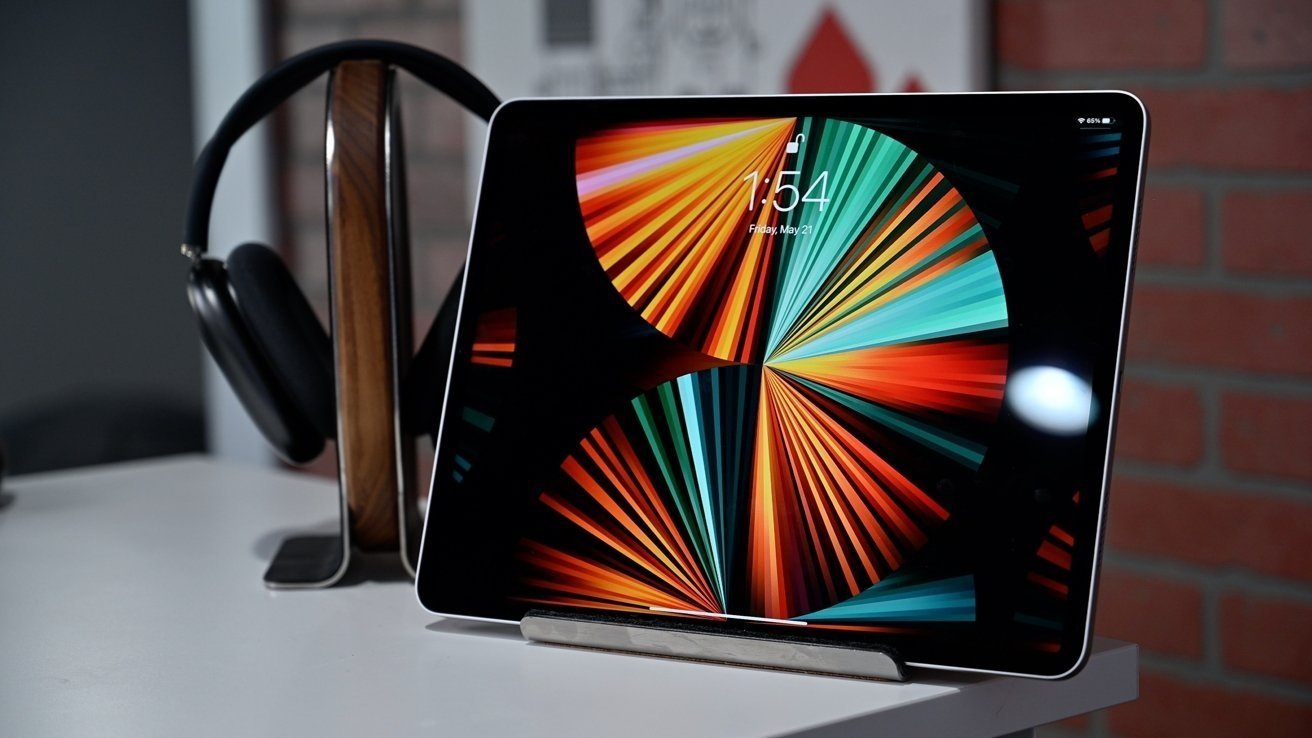MiniLED, as used within the iPad Professional and MacBook Professional may very well be outmoded by microLED
Foxconn is shifting into the AR glasses market, and that can even assist Apple use microLED shows in future merchandise. Here is how.
Apple has progressively modified the show applied sciences it makes use of in its merchandise over time. After utilizing TFT, OLED, and mini LED, the subsequent shift to microLED might find yourself being helped by an funding by a provide chain accomplice.
In a Tuesday announcement, Foxconn revealed a partnership with Porotech, an organization working within the augmented actuality trade, with a background in show know-how. Beneath the partnership, Foxconn might be getting into the AR glasses market, with the 2 engaged on microLED wafer processing and optical module packaging.
This can embrace the institution of a microLED wafer processing manufacturing line in Taichung, Taiwan. Mass manufacturing of wafers and modules might be beginning in This fall 2025.
Sensing AR to be a “promising progress space,” Foxconn additionally anticipates the power will be capable of “cater to the wants of future mainstream world purchasers.”
By this, Foxconn virtually actually will embrace Apple as a microLED panel consumer sooner or later. Nonetheless, regardless of Foxconn’s overtures of constructing shows for headsets, Apple’s wants might be extra common in nature.
MicroLED vs older show tech
MicroLED is a know-how that, because the title suggests, makes use of miniature LEDs to create a show. TFT shows depend on backlighting, which incorporates LEDs or typically miniLED, as seen within the MacBook Professional, to supply the sunshine itself.
OLED would not use a backlight because it makes use of a self-illuminating materials in every pixel, leading to a brighter and extra vivid show with true-black pixels. Nonetheless, OLED is comparatively costly to supply resulting from dealing with the natural self-illuminating materials.
MicroLED makes use of tiny LEDs piled collectively on a substrate, that are extra sturdy than OLED. On the identical time, being LEDs, they emit mild with no need a backlight, similar to OLED.
Utilizing small collections of microLEDs to emit pink, inexperienced, and blue mild, every pixel may be made with out requiring a color-filtering layer. The approach might additionally supply appreciable energy and cost-saving advantages over OLED.
Apple’s MicroLED ambitions
The obvious use of microLED is to make use of it for headsets, since it will possibly produce very shiny, very pixel-dense shows. Nonetheless, Apple has a appreciable historical past engaged on the know-how, and for different functions.
Reviews previously embrace its acquisition of microLED specialist LuxVue in 2014. This was adopted by a 2018 discovery of a secret engineering and manufacturing facility for microLED analysis.
Earlier stories have supplied the prospect of utilizing microLED shows on the Apple Watch, presumably introducing fashions utilizing it by 2025, regardless of technical setbacks.
Reviews have additionally put ahead the concept the use in Apple Watch shows is a precursor to utilizing the know-how in an iPhone replace.
Again in 2019, Foxconn was reportedly growing its personal microLED tech, with a view to snagging future iPhone show orders from Apple. A time lengthy earlier than the arrival of the Apple Imaginative and prescient Professional.
Foxconn’s transfer actually has functions for future headset manufacturing at Apple. However even it seemingly knew that the tech would have a a lot wider, and extra profitable, enchantment to Apple past a wearable show.



